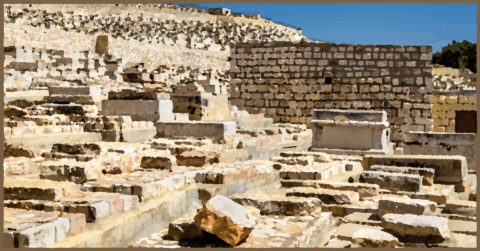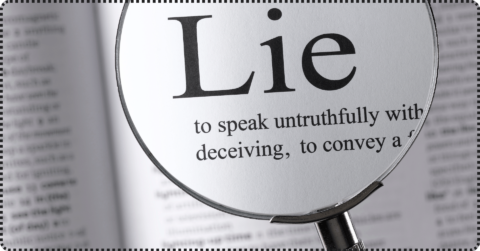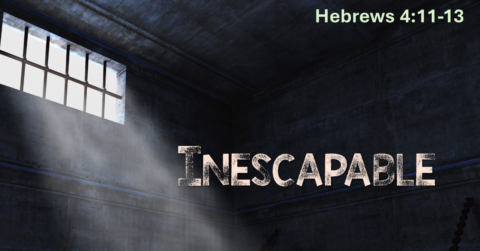Category: Subject Index
Study Material Categorized by Subject
Working on the House of the Lord

The book of Haggai is a short work, a series of messages from the prophet to Zerubbabel (governor), Judah (high priest) and the remnant of Judah who had returned from Babylonian captivity. The people had returned to rebuild the temple, but years had passed with it unfinished. An introduction to the book indicated that Haggai’s message was a call for renewal, a renewal of courage, holiness, and faith. This seems to be a rather apt description of the message God gave to the prophet.
First, notice why the people had left the temple unfinished for several years. “Is it time for you yourselves to dwell in your paneled houses, and this temple to lie in ruins? Now therefore, thus says the LORD of hosts: ‘Consider your ways!’” (Haggai 1:4-5). The people had become distracted, shifting their priorities from the greater to the lesser. They were more concerned for their own comfort than for serving the Lord. Misplaced priorities are a big problem for just about every generation! In this the returned exiles were typical, “It is time for you yourselves to dwell in your paneled houses, and this temple to lie in ruins?” The remedy is, as stated, to “consider your ways!” Continue reading “Working on the House of the Lord” →
Mining the Scriptures: James 1:26-27

The final two verses of this first chapter of James contain a contrast between vain religion and pure religion.
First, vain (useless) religion is a religion that does not change a person for the better. Specifically, James describes one who thinks himself to be religious, but it has not touched his tongue (or his heart), cf. Matthew 15:18.
Second, pure (and undefiled) religion is characterized by both what is not done, and what is done. One whose religion is pure will show it by righteousness. He will keep himself “unspotted from the world,” cf. 1 Peter 4:3. Additionally, he does his duty, what God requires of Him. He visits “orphans and widows in their trouble,” cf. Galatians 6:10.
Simply put, our religion must first be true (accepting Jesus Christ as the Anointed, the Son of God), and also life changing. We must be a “new creation” (2 Corinthians 5:17), living our lives according to Jesus’ own will (Galatians 2:20).
Comparing High Priests

Aaron, the older brother of Moses, was appointed to be the first High Priest of the nation of Israel. This was an office established by God under the Old Covenant, the Law that God gave to Moses to govern the Jews. Aaron was the first of many men who served in this capacity before Jesus. He was a descendent of Levi, hence the priesthood is known as the Levitical or Aaronic priesthood. Put simply, these were mere men, themselves guilty of sin, who yearly had to offer the blood of bulls and goats for atonement, first for themselves, and then for the people of Israel, (cf. Leviticus 16:1-5).
In the letter to the Hebrews, the Holy Spirit makes clear the differences between Jesus as High Priest, and those who went on before. Consider the following: Continue reading “Comparing High Priests” →
Putting Away Lying

“Therefore, putting away lying, ‘Let each one of you speak truth with his neighbor,’ for we are members of one another” (Ephesians 4:25).
The phrase, “Let each one of you speak truth with his neighbor,” is taken from Zechariah 8:16. Zechariah’s prophecies occurred following the return of the remnant from Babylonian captivity. Note two points. First, honesty is a principle that should inform every part of our lives, and all of our relationships. Second, this is especially so with whom we share a special bond, “for we are members of one another.”
The bond the remnant shared was their cultural and national identities. They were Jews, part of God’s chosen people, with a obligation to keep the law.
Here Paul wrote to the Ephesian Christians. Their bond was their shared faith in Jesus Christ. The same words were used by Paul to describe that relationship in Romans 12:5.
Honesty (putting away lying) is important in and of itself. God revealed time and again that lying, deceit, guile, are condemnable acts, and not worthy of God’s children (cf. Revelation 21:8). Beyond that, our special bond as Christians demands that we treat each other honestly. To do less is to disrespect and endanger our fellowship as His children!
Sermon: Spiritual Maturity

Once you become a Christian, it is important to grow to maturity, progressing rather than regressing.
Sermon Powerpoint View and Download:
<<———><><———>>
Sermon: “In Isaac Your Seed Shall Be Called”

A discussion of Romans 9:1-8, showing that ultimately, salvation for both the Jew and the Gentile is found in the promise of the Messiah, fulfilled through Isaac.
Sermon Powerpoint View and Download:
<<———><><———>>
Sermon: Inescapable

Certain things are not avoidable in life, including The Consequences of Sin, Death, and the Judgment!
Sermon Powerpoint View and Download:
<<———><><———>>
Sermon: Psalm 53

A discussion of the 53rd Psalm and the expression of the evil fool, “There is no God.”
Sermon Powerpoint View and Download:
<<———><><———>>
Weeping Now, or Laughing Now?

I was asked to speak on a couple of passages in Luke 6 (in August), and while it is on my mind I would like to share with you some thoughts about the 21st and 25th verses. In the latter part of verse 21, our Lord says, “Blessed are you who weep now, for you shall laugh.” In the last part of verse 25 the thought is reversed, “Woe to you who laugh now, for you shall mourn and weep.”
The initial thought I had is that these two principles are very clearly demonstrated in Luke 16. There, we have a contrast between the lives, deaths, and afterlives of a rich man, and a beggar named Lazarus. “There was a certain rich man who was clothed in purple and fine linen and fared sumptuously every day. But there was a certain beggar named Lazarus, full of sores, who was laid at his gate, desiring to be fed with the crumbs which fell from the rich man’s table. Moreover the dogs came and licked his sores” (Luke 16:19-21). Continue reading “Weeping Now, or Laughing Now?” →
Mining the Scriptures: Hebrews 3:1-2

The first 6 verses of Hebrews 3 compare and contrast Jesus with Moses. First, the comparison in verses 1-2.
We begin with identification of Jesus as the Apostle and High priest of our confession. Notice the definite article. He is ‘the’ Apostle — a delegate or ambassador. In these last days, Jesus was the One (the only One) sent to man by God. He is also the only High Priest of the New Covenant, of the order of Melchizedek, (cf. Hebrews 6:20). He is the only high priest needed. “Therefore He is also able to save to the uttermost those who come to God through Him, since He always lives to make intercession for them” (Hebrews 7:25).
Like Moses, Jesus was “faithful to Him who appointed Him” (2). He Himself said, “I can of Myself do nothing. As I hear, I judge; and My judgment is righteous, because I do not seek My own will but the will of the Father who sent Me” (John 5:30). Moses was faithful as well, living his life in service to Jehovah. There are differences between the two, but as stewards, fulfilling God’s desire for them, they were certainly alike in their faithfulness to execute God’s will!
God’s Son – Chronology and Location

It is interesting to note what the scriptures say about where and when the Son of God has been. For example, from the beginning.
(John 1:1-2), “In the beginning was the Word, and the Word was with God, and the Word was God. He was in the beginning with God.”
What Defiles a Man

After his disciples were criticized by Pharisees for eating with unwashed hands, Jesus told a multitude, “Hear and understand: Not what goes into the mouth defiles a man; but what comes out of the mouth, this defiles a man” (Matthew 15:11). This offended the Pharisees, who were bound by the traditions of the elders, and even was confusing to His own disciples. Peter asked Jesus, “Explain this parable to us” (15).
The explanation is simple. Jesus was using the process of digestion to show that what we eat is eliminated, but the things that defile a man are what come from the heart, come from within. Things like, “evil thoughts, murders, adulteries, fornications, thefts, false witness, blasphemies” (19).
Today, under Christ’s covenant, defilement is not physical, it is spiritual. Defilement is defined by our Lord as sin itself. Holiness is determined by the proper practice of our faith! “Pure and undefiled religion before God and the Father is this: to visit orphans and widows in their trouble, and to keep oneself unspotted from the world” (James 1:27).
So disregard man-made traditions, restrictions, requirements. “These things indeed have an appearance of wisdom in self-imposed religion, false humility, and neglect of the body, but are of no value against the indulgence of the flesh” (Colossians 2:23).
Take sin seriously. This is what affects our relationship with God. Ask yourself, “Have I defiled myself with sin?”




